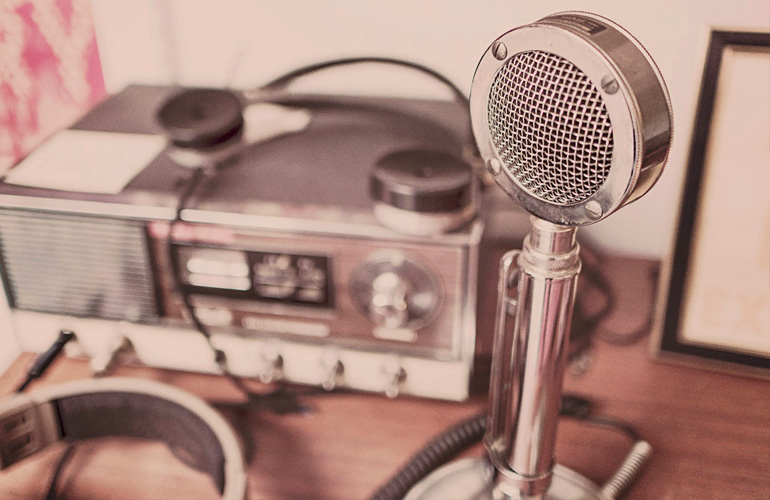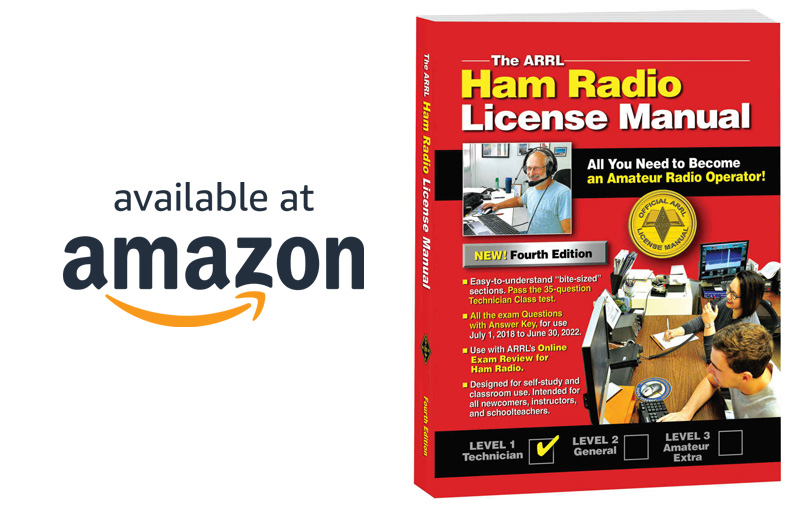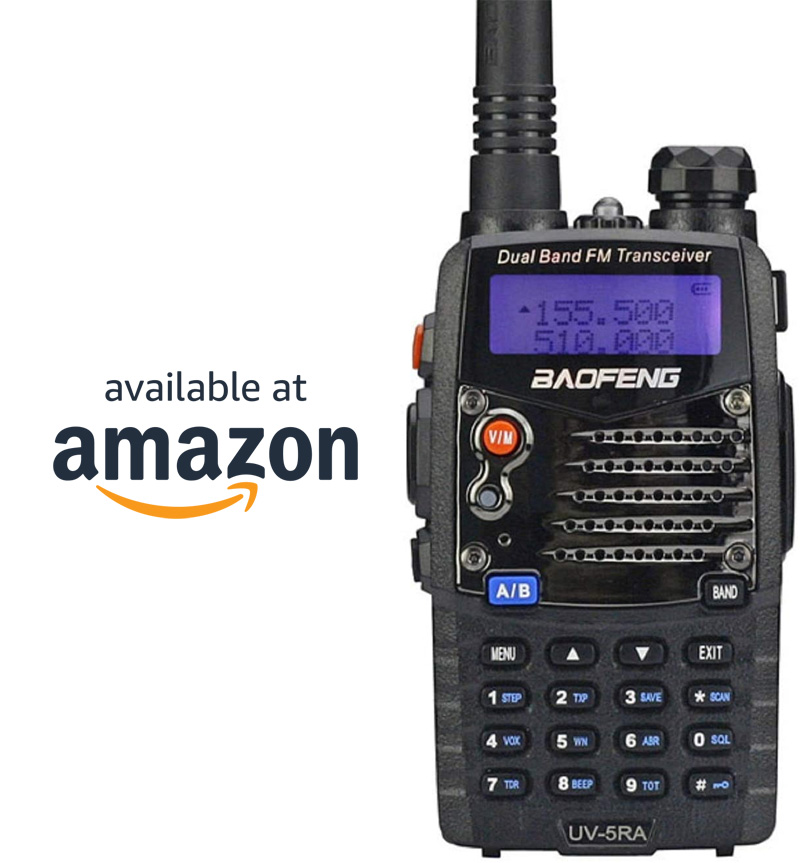Why You Should Get Your Ham Radio License

The topic of radio communications and, and specifically ham radio, comes up often in conversations about preparedness, prepping, and survivalism. The general idea is that it’s important to have a means of
communication if there is no phone service, mobile networks or internet. Accordingly, the most accessible and versatile radio communication method is ham (technically known as amateur radio).
As far as radio communications for civilian use, there’s CB (citizen’s band), ham (amateur radio), and a variety of other personal or “family-use” radio bands like MURS, FMRS, or GMRS (think of those cheap walkie-talkies that your family might use while camping). Ham radio offers the most broad range of frequencies and versatility, and how ou can communicate with people across long distances.
While there’s no license needed to listen to ham radio communications, to transmit audio (or data) communications over an amateur radio frequency, a license is needed.
The caveat to that is in a legitimate emergency situation and survival depends on being able to communicate, you’re allowed to transmit on a ham band. If you’re trapped in the woods facing a life-and-death situation, you’ll get a pass if you call for help over a ham radio. But in any other circumstance, a license is needed in order to transmit.
There are currently three different amateur radio license “classes” or levels. There used to be different classifications and they have been modified a few times over the decades, but the current license structure has three:
- Technician Class
- General Class
- Amateur Extra
Technician Class
The lowest and easiest to get, the Technician Class license allows you to to transmit on certain bands and frequencies. These bands are mostly going to be useful for short-to-medium range communication. Depending on your equipment and use of repeater networks, you may be able to communicate across North America. But if using simplex (direct radio-to-radio calling) you are realistically going to be limited to a much shorter range. There are limited privileges with the Technician Class license that could be used for longer-range and even international communications. But again, this will depend greatly on your transceiver and antennae.
In order to get the license you must pass a 35 question test. It’s my opinion that any person of average intelligence and enough interest to learn about it can study for and pass the Technician Class license exam. And even if you’re not especially interested in being a practicing ham radio operator, I think it’s still a very good idea to get a ham radio license if you are interested in any kind of radio communications for disaster-preparedness reasons. In studying for your ham radio license, you’re not only going to learn about how to operate a radio, you’re going to learn about:
- Radio theory
- History of radio technology
- Rules, regulations, and laws
- Basic electrical theory
- Circuit components
And all sorts of other things, such as how radio and light waves bounce across the atmosphere. I find it all really interesting, and I guess anyone with some nerdy inclinations might as well. But if you’ve never had any exposure to knowledge like radio theory or electrical theory, or any practical knowledge in either of those two areas, these are things you’re going to learn through the course of studying for the ham radio license. If you have any interest whatsoever in using radios for SHTF communications, this is really the place to start.
Even if you don’t end up wanting to be a ham radio operator, and even if you don’t end up wanting to take the test to get your your license, it’s still a really a great crash course in learning about radio communications in general. From there you could go a different direction and buy a fully-encrypted personal communication network that only you and your family will use.
Ham radio has been around for a very long time, and there’s a lot of great knowledge to be had. There’s still a lot of people using it. There are ham radio clubs all around the country. In fact, many of these clubs conduct classes to teach you the stuff you need to know for the ham license. In many cases that I’ve seen, it’s even free of charge. They do it because they want to expand the hobby and ensure that future generations will appreciate and use it. You can certainly study for the exam online or with the book, but if you’re someone who learns better in a classroom-type environment, this is a great way to go.
I started by buying the book. The ARRL official ham radio technician class study manual, to be exact. It’s a lot of material, but it’s written and presented in a way that’s easy to digest. I am by no means an student. I’m not particularly great at studying for tests, but I was able to get through it pretty well. Then you can go online and take practice tests. Take practice tests a hundred times if you need.
Find a local license exam location on the ARRL website
When you go to take the test, often conducted by local ham radio organizations, it will be comprised of 35 questions. These are selected from a pool of questions, and each physical copy of the test will be a bit different.
General Class
If you enjoy learning about all the things that you need to get a technician license and you want to take it a step further, you can go for the General Class license.
Getting a General Class license involves learning a lot more in-depth stuff, and it allows you more operating privileges on more bands and modes.
Amateur Extra
If you want to kick it up another notch, you can get the Amateur Extra license. This is the highest-level license in the United States for operating ham radio. This level involves some serious knowledge, and not everybody will be able to attain it.
The Amateur Extra license comes with all amateur radio privileges. All bands, all frequencies, all modes. That being said, much of this is not practical or necessary for the average American who is just trying to establish an emergency communications plan for their family or survival community.
Why Should I Get My License?
Let’s recap why should you get your ham radio license:
- It’s kind of fun and you get your own official FCC call-sign.
- You’re pretty much forced to learn a lot about radio communication and radio hardware.
- You’re pretty much forced to learn a lot about electricity and electrical circuits.
- You can practice your off-grid or post SHTF communications much more thoroughly if you don’t have to worry about breaking the law by operating without a license. You can communicate with other people who have their licenses and take part in in nets conducted by local radio groups.
Try to learn about the radio clubs in your area, or get other people you know interested in it. If you’re looking at radio communication for some sort of post-collapse option to stay connected with other people it’s undoubtedly the strongest option.
One other little tidbit I’ll mention: While the original ham radios were basically cobbled together out of spare parts by smart guys in sheds, the technology and utilization of that tech has come such a long way. Of course the radios have gotten better, smaller, and cheaper. But these days there are ways to integrate your radio equipment with a computer in a way that acts almost like a radio-wave internet. Much like how information is sent over Wi-Fi or a wired internet connection, data packets can be sent over the airwaves to send/receive text and even images. It’s certainly slower and less efficient than digital or cellular technologies, but we’re talking about what is basically a ham radio “internet!” It’s kind of amazing to me. If the world is burning but you and your friend both have the right equipment, you could still send memes to each other!
If you want to get started, you certainly don’t have to go out and buy a thousand-dollar ham radio. A lot of people, including myself, started off with a cheap handheld radio like the popular Baofeng for around $30. You can learn a lot with a very basic radio, and if you really enjoy it and want to go deeper you can invest some money in some better equipment. But you can learn and practice a great deal of the knowledge you’ll need to get your Technician Class license with a cheapo radio like the Baofeng.
Find a local license exam location on the ARRL website



